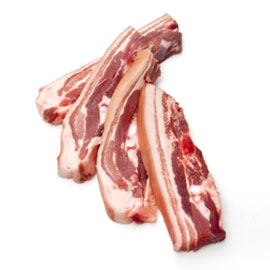 Patients suffering from gallbladder related issues such as gallstones may undergo gallbladder surgery to improve their condition. Though the gallbladder is an organ people can live without, some dietary adjustments may be necessary after gallbladder surgery to maintain proper digestive functioning.
Patients suffering from gallbladder related issues such as gallstones may undergo gallbladder surgery to improve their condition. Though the gallbladder is an organ people can live without, some dietary adjustments may be necessary after gallbladder surgery to maintain proper digestive functioning.
Digestion before Gallbladder Surgery
Specific dietary guidelines will vary depending on the individual. However, it’s helpful to know a little background info concerning the functions of the gallbladder. Your gallbladder is an organ that collects bile or fluid produced by the liver that aids in the breakdown and absorption of fat within your body. Between meal consumption, bile collects in your gallbladder and becomes concentrated. Once your gallbladder is removed bile becomes less concentrated and drains continuously into the intestine. As a result, gallbladder surgery affects not only the digestion of fat but fat-soluble vitamins as well.
Following gallbladder surgery, it’s not uncommon for patients to have some difficulty digesting certain foods. Digestion difficulty will vary depending on the individual and your body will often adjust and become better at digesting fatty foods in time.
Dietary Adjustments after Gallbladder Surgery
Following your gallbladder surgery, make sure to adhere to the dietary instructions Dr. Bass will give you. If your recovery is spent in the hospital, medical assistants will help you transition from a liquid diet to a solid diet after your surgery.
If you happen to be recovering at home, you will begin consuming clear liquids following surgery and solid foods will be reintroduced slowly. As you begin to feel better and experience less nausea, you may begin introducing solids foods back into your diet. However, there will be certain foods you will want to avoid eating immediately after your surgery.
As mentioned before, your gallbladder will no longer be there to control the release of bile into the intestine after surgery. Once your gallbladder is removed it may take your body several weeks to adjust to the change and you may experience bloating, diarrhea and gas after eating fatty foods. Rest assured that most patients are able to return to a normal diet within one month following gallbladder surgery.
Foods to Avoid after Surgery
As your body begins to adjust after surgery, you will be advised to avoid foods with high fat content. Some of these fatty foods include:
- Fried foods such as French fries and chips
- Meats with high fat content such as bacon, sausage and ground beef
- Dairy products with high fat content such as ice-cream, whole milk and sour cream
- Food products made with lard or butter
- Soups or sauces with a cream base
- Chocolate
- Pizza
Foods with high fat content are not the only trouble makers—many high fiber and spicy foods can cause patients discomfort after gallbladder surgery. Introduce the following foods slowly into your diet:
- Whole grains
- Nuts
- Cereals
- Legumes
- Broccoli
- Cabbage
Though there are normal digestive symptoms that develop after gallbladder surgery, it’s best to contact Dr. Bass if you experience any problems with eating and digesting foods.